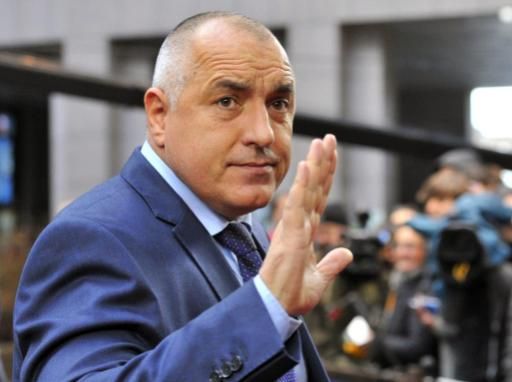
Political Crisis in Bulgaria to Delay Energy Sector Reforms
Publication: Eurasia Daily Monitor Volume: 10 Issue: 34
By:

The resignation of the Bulgarian government amidst massive protests against high energy prices, poverty and corruption has left the country in disarray. Prime Minister Boyko Borisov announced the resignation of his cabinet on February 20 after protests in Sofia turned violent, leaving 25 people injured, including two police officers. The parliament approved the government’s resignation on February 21 following a bitter exchange between the ruling party and the opposition. Bulgarian President Rosen Plevneliev has criticized Borisov’s unexpected decision to resign just four months before parliamentary elections, saying: “The politically responsible option was for the cabinet to finish its term” (BTA, BNT, February 21).
As a populist politician, Borisov evidently attempted to distance himself and his party, Citizens for the European Development of Bulgaria (GERB), from the ongoing protests, calculating that he could win the elections and return to power in July. The next few months will be difficult for any government, since the protests are continuing with new demands that go beyond energy prices. In addition, supporters of the government have also staged rallies in Sofia and other cities. After the cabinet stepped down, however, demonstrations have become peaceful and more orderly (Dnevnik, February 21).
President Plevneliev has started consultations with several parliamentary political parties, but so far none of them is willing to form a government. This leaves only one option: dissolution of the parliament, appointment of a caretaker government, and the scheduling of new elections within two months. The president warned that the absence of a working parliament would delay legislative initiatives to de-monopolize and ensure transparency in the energy sector (bTV, February 21).
Most importantly, the political crisis will delay by six to nine months any important decisions on economic development—the only solution to the core problem of low incomes and low living standards. Bulgaria remains the poorest member of the European Union, although it has maintained financial stability, kept the budget deficit under two percent and registered slight economic growth during Europe’s economic crisis (1.7 percent GDP growth in 2012). The average monthly salary in December barely reached $550, and the average pension remained under $200. At the same time, household electricity bills have doubled, reaching almost half of the average salary (TV7, February 7).
The protestors’ demands started with re-nationalization of the energy distribution sector, which is now run by the Czech CEZ and Energy Pro and the Austrian EVN. Just before resigning, Borisov threatened CEZ with revoking its license, but the state regulatory body postponed the decision pending an audit and investigation by the Prosecutor General’s office (novinite.com, February 19). Re-nationalization will be a devastating and costly move that could scare foreign investors, but not solve the problem.
Electricity prices in Bulgaria are not higher than in other EU countries and most importantly, they will not go down for a number of reasons. First, coal operated thermo-power plants now pay additional carbon dioxide emissions fees according to EU regulations, making their electricity more expensive.
Second, a number of renewable energy installations, which were previously granted preferential electricity prices by the government, became operational and came online at the same time in June 2012, after the authorities announced that no access to the grid would be available in the second half of the year. Green energy is still expensive, especially during the first years of exploitation. Consumer prices for electricity were raised by 13.6 percent in July 2012, but that was insufficient to cover the National Energy Company’s deficit caused by buying higher quantities of green energy. The government resorted to installing a controversial additional tax ranging from 1 to 39 percent on renewable energy companies’ revenue. They, in turn, have passed that tax on to consumers (Capital, January 4; November 2, 2012).
Third, Bulgaria is slow to look for long-term solutions for low-cost energy sources. The authorities have deferred possible exploration for shale gas that could bring the price of energy down significantly, as it has in the United States. A year ago, under public pressure from environmental groups, parliament imposed an indefinite moratorium on shale gas exploration and the government revoked Chevron’s permit, thus placing Bulgaria behind Poland, Romania and even Ukraine (see EDM, January 24, 2012).
Ironically, the political crisis in Bulgaria will have a negative impact on another potential long-term solution to curtailing Bulgaria’s dependence on expensive Russian gas. The launching of the Nabucco-West pipeline to transfer gas from Azerbaijan to Europe was scheduled for June 2013, but it will be undoubtedly delayed for months until the new government is formed.
Depending on the election results, the new government may or may not be led by Borisov and his party. If the Socialist Party (BSP), which is now taking advantage of the public anger, comes back to power, old Moscow loyalties are likely to be rekindled; and instead of Nabucco-West and shale gas exploration, the BSP will focus on Russian energy projects. A Socialist government will not delay the Russian-led South Stream natural gas pipeline and will attempt to revive the Belene nuclear power plant (NPP) project. Sergey Stanishev, a former prime minister and leader of the BSP, has already announced, just hours after the resignation of Borisov’s government, that his party will treat the implementation of the Belene NPP project as a priority in the next parliament, if given a mandate to rule the country (ITAR-TASS, February 21).
The protestors against rising energy prices are not looking that far ahead, but focus on their current utility bills. Much of the Bulgarian public is frustrated with crony capitalism, official corruption, and non-transparent business practices. The protestors demand the election of a Great National Assembly to adopt a new Constitution and insist on a majoritarian electoral system instead of the current proportional one, which empowers political parties. They mistrust the political elites, the state and businesses, including foreign investors. It will be difficult for President Plevneliev to convert such a public mood into a constructive force. It will be even more difficult to appoint a government that would contain the situation and ensure free and fair elections.




